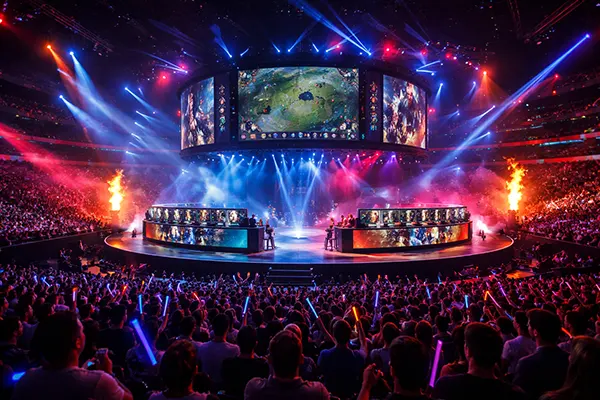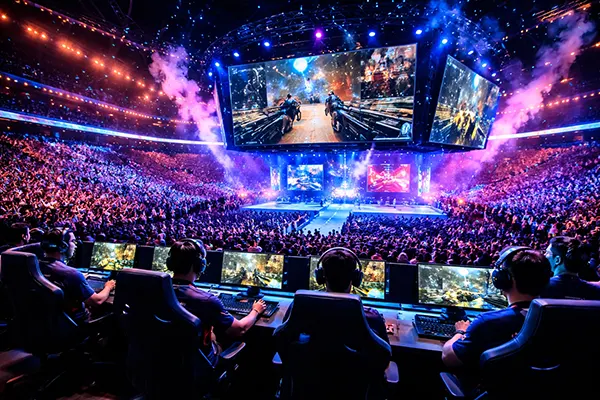How the Esports Betting Market is Changing in Countries with Strict Regulatory Control

In recent years, the esports betting sector has become one of the fastest-growing segments of the global gambling industry. Yet, its expansion has faced significant challenges in countries with strict legislative frameworks. These markets are now redefining how esports betting operates through advanced compliance systems, new licensing models, and digital transparency requirements.
Regulatory Adaptation in Mature Markets
Countries like the United Kingdom, Germany, and South Korea have set the standard for lawful esports betting by establishing specialised gambling authorities. The UK Gambling Commission, for instance, has introduced separate licensing for esports operators, ensuring fair odds, data integrity, and player protection. Such initiatives provide both accountability and a stable legal foundation for operators and bettors alike.
Germany’s Interstate Treaty on Gambling (Glücksspielstaatsvertrag) of 2021, updated again in 2024, introduced tighter advertising rules and mandatory identification checks. This framework seeks to prevent underage participation while promoting responsible betting behaviour. By 2025, compliance audits and AI-based monitoring tools have become essential to maintaining certification in this market.
In South Korea, where esports are part of mainstream culture, government control is combined with a national effort to keep illegal gambling in check. Licensed operators must collaborate with esports organisations to verify event legitimacy and prize accuracy. As a result, transparency and credibility have become key success factors in maintaining trust with players and regulators.
Technological Measures in Regulatory Compliance
To comply with these evolving laws, operators have turned to blockchain and AI technologies. Blockchain ensures transparent bet recording and traceability, which regulators can audit in real time. Smart contracts automate payout processes, removing the risk of manipulation or delay.
AI systems play an equally crucial role in identifying suspicious betting patterns. Through predictive analysis and behaviour tracking, operators can detect potential match-fixing or money-laundering activity before it escalates. These tools have become a requirement in several jurisdictions by 2025, especially for tournaments involving high-value wagers.
Moreover, geolocation technology allows betting providers to enforce jurisdictional restrictions effectively. This ensures that users can only place bets from legal regions, aligning online systems with local legislation without compromising user experience or data privacy.
Legal Challenges and Market Transformation
Regulatory tension remains one of the greatest obstacles for global esports betting operators. In countries such as China and Singapore, where betting is highly restricted, companies must focus on skill-based prediction models rather than traditional wagering. These legal adaptations have given rise to “fantasy esports” and prediction platforms that operate under different legal definitions.
The North American market has also witnessed gradual legalisation but under heavy scrutiny. States like Nevada and New Jersey have implemented pilot frameworks where esports betting is monitored similarly to traditional sports betting. This legal evolution has prompted major sportsbooks to diversify their offerings and integrate esports into their licensed betting products.
Latin American markets, particularly Brazil and Chile, have recently updated their gambling codes to accommodate esports-specific betting. New tax models and self-exclusion policies are being developed to maintain player protection while allowing for sustainable market growth.
Public Perception and Responsible Betting
Public trust is central to esports betting regulation. Governments have recognised that over-regulation may push players towards unlicensed operators, creating more harm than protection. Therefore, educational campaigns have become common in 2025, encouraging bettors to use verified operators and understand responsible gaming principles.
Responsible gambling tools, including self-exclusion, deposit limits, and behavioural alerts, are now mandatory under most national licensing frameworks. Operators that fail to implement such measures risk suspension or heavy fines. This proactive approach ensures that the industry maintains its credibility while addressing public concerns about gambling addiction and fairness.
Collaborations between regulators and esports organisations have also proven beneficial. By jointly developing ethical codes and monitoring practices, both sectors aim to protect the integrity of competitions and the wellbeing of bettors. This partnership marks a turning point for the sustainable growth of esports betting worldwide.

Global Trends and Future Outlook
By 2025, the esports betting market is characterised by a balance between innovation and regulation. Markets that initially resisted gambling liberalisation are now adopting licensing models inspired by Europe’s framework, ensuring safe participation without sacrificing market potential. The introduction of digital identity verification and cross-border compliance standards is redefining how operators function globally.
Esports events now often partner directly with regulated bookmakers to ensure transparent odds publication and anti-fraud protocols. This collaboration benefits both the esports industry and the betting market, fostering legitimacy and opening new sponsorship opportunities. These partnerships also help combat illegal betting syndicates that historically targeted unregulated events.
Looking forward, experts predict that international cooperation between regulators will intensify. Shared databases and unified compliance systems could become the standard for preventing match manipulation and underage betting. The industry’s success will depend not only on technological innovation but also on maintaining ethical standards and global trust.
Ethical Standards and Market Sustainability
The long-term sustainability of esports betting relies on ethical alignment between stakeholders. Operators, esports organisations, and regulatory bodies must continue to prioritise transparency, fair play, and consumer protection. These shared values form the foundation for responsible market expansion.
Furthermore, the development of educational programmes on betting literacy is expected to grow. Esports fans, many of whom are under 30, require clear information about risks and safe practices. By addressing these social factors, regulators ensure that esports betting evolves into a mature, accountable industry.
Ultimately, the countries that manage to balance strict legislation with technological adaptability will set the global benchmark for safe and innovative esports wagering. In doing so, they will demonstrate that regulation and growth are not mutually exclusive but rather complementary forces in a modern betting environment.




